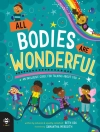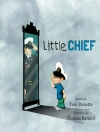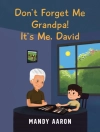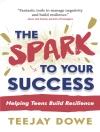There are many different models of marriage and family therapy; the challenge for students and beginning practitioners is deciding which one best suits their individual purposes. This highly practical volume elucidates the defining characteristics of 14 contemporary models, including their history, views of change, views of family and the role of the therapist; and methods of assessing family dynamics, goal setting; facilitating change; and knowing when to terminate. Each chapter also includes a template for implementing therapy models, and realistic case studies-many drawn from actual practice-to illustrate how each model would address common issues.
In addition, the volume includes extensive interviews with master therapists such as Albert Ellis, Insoo Kim Berg, Sue Johnson, Susan Mc Daniel, Derald Wing Sue, and many others. They share their ideas of the ways in which change occurs, how they set goals, and how they perform therapy. For further clarification, each therapist illustrates how he/she would proceed via the same case study. Learning how to perform effective family therapy can be an arduous process of trial and error, yet this resource will ease the way for students and currently practicing family therapists who need to revisit the basics.
Modalities Included
Bowen Family Systems Theory
Contextual Family Therapy
Cognitive Behavioral Family Therapy Models
Rational Emotive Behavior Therapy
Symbolic-Experiential Family Therapy
Satir Human Validation Process Model
Milan Systemic Family Therapy
Structural Family Therapy
Strategic Family Therapy
Solution-Focused Brief Therapy with Families
Narrative Therapy with Families
Emotionally Focused Therapy
Medical Family Therapy
Family Psychoeducation
Key Features:
- Introduces the theory, history, theoretical assumptions, techniques, and components of each model
- Includes a template for using each model, from the initial meeting through assessment, intervention, and termination
- Provides numerous interviews with master therapists
- Includes case study commentary and analysis by master therapists
- Suggests questions, therapeutic strategies, and/or comments to consider for each therapeutic phase
- Includes a personality inventory to help readers select the most effective modality
Inhoudsopgave
Contributors
Foreword
Preface
Acknowledgments
I: INTRODUCTION
1. The Practice of Marriage and Family Therapy
2. The Self of the Therapist
II: THEORIES IN MARRIAGE AND FAMILY THERAPY
3. Bowen Family Systems Theory
4. Contextual Family Therapy
5. Cognitive Behavioral Models of Family Therapy
6. Rational Emotive Behavior Therapy
7. Symbolic-Experiential Family Therapy
8. Satir Human Validation Process Model
9. Milan Systemic Family Therapy
10. Structural Family Therapy
11. Strategic Family Therapy
12. Solution-Focused Brief Therapy With Families
13. Narrative Therapy With Families
14. Emotionally Focused Therapy
15. Medical Family Therapy
16. Family Psychoeducation
III: OTHER ISSUES IN MARRIAGE AND FAMILY THERAPY
17. Supervision in Marriage and Family Therapy
18. Research in Marriage and Family Therapy
19. Ethical Issues in Marriage and Family Therapy
20. The Family Therapist and Diversity
Index
Over de auteur
Linda Metcalf, MEd, Ph D, LMFT, LPC, is currently a Professor of Graduate Counseling Programs at Texas Wesleyan University in Fort Worth, Texas where she created a COAMFTE accredited doctoral program in marriage and family therapy. She is past president of the American Association for Marriage and Family Therapy and has been president of the Texas Association for Marriage and Family Therapy twice. She is the creator of the Solution Focused Schools Unlimited podcast and the free Solution Focused Connection webinar, created in response to the COVID-19 pandemic.












